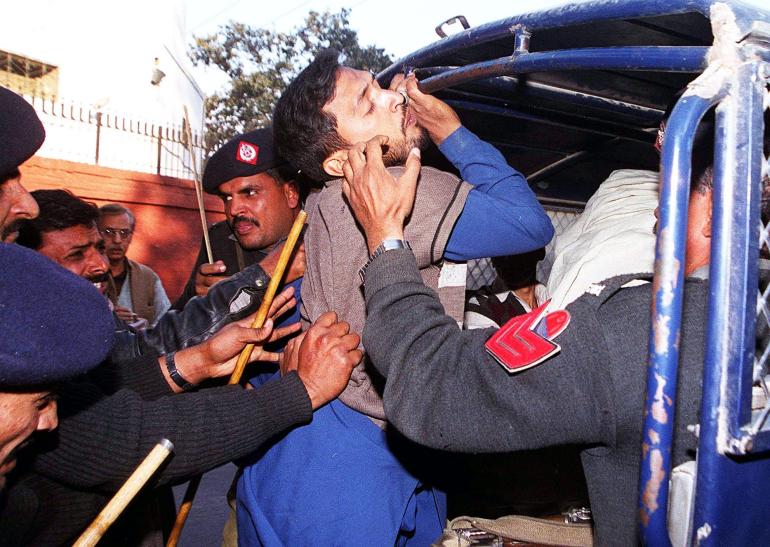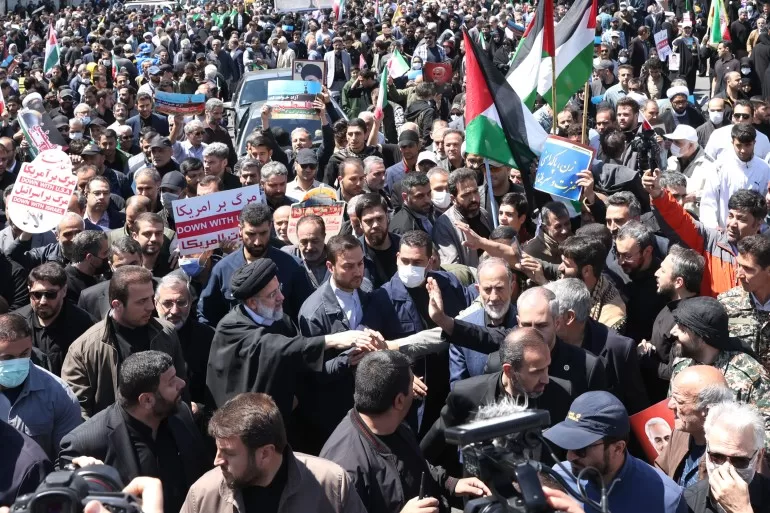Here is what you need to know about the event, its history, and its significance.
What is Al-Quds Day?
Al-Quds Day (or, simply, “Quds Day”) is an annual, international day to express support for Palestine and oppose the Israeli occupation of Palestinian territories. Large rallies are held, usually beginning after the communal Friday prayers.
Iran’s first supreme leader, Ruhollah Khomeini, established Quds Day in 1979 shortly after the Iranian Revolution to show solidarity with Palestinians and reject Israeli occupation of East Jerusalem. It has since become a symbol of resistance.
Some observers have claimed that the event was initiated by Iran to further its own political interests of using proxies to fight against Israel and Western powers.
In a statement on Quds Day this year, Iran’s foreign ministry said the event has “now turned into a symbol of the unity of the entirety of humanity”. It also condemned the United States and Western states for lending support to Israel in its war on Gaza.
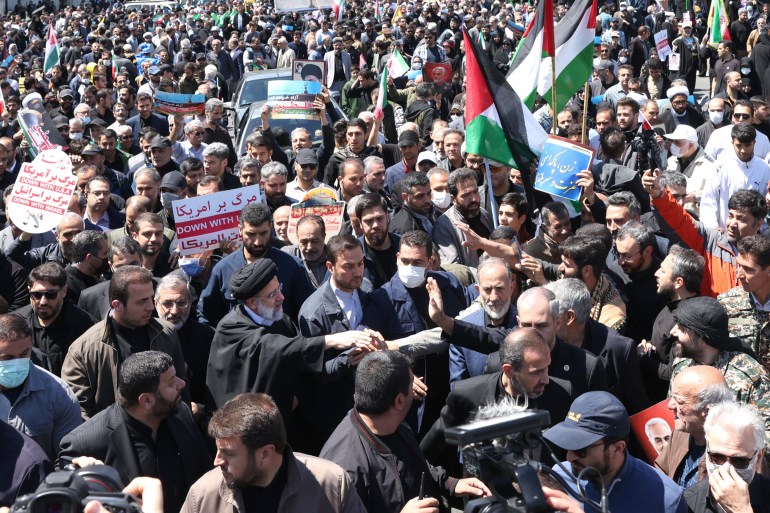
When is Quds Day?
It is held every year on the last Friday of Ramadan – this year, April 5. The holy month of Ramadan, during which Muslims fast from dawn to dusk every day of the month, takes place in the ninth month of the Islamic Lunar calendar.
Where does the name ‘Al-Quds’ come from?
“Al-Quds” or “Quds” is the Arabic name for Jerusalem. Hence, this event is also called “Jerusalem Day”.
In Arabic, the word “al-Quds” translates to “the holy one”.
The city of Jerusalem is holy to all three monotheistic religions, Christianity, Islam and Judaism. Jerusalem’s Al-Aqsa Mosque is also the third-holiest mosque in Islam and has been subject to raids and access restrictions by Israeli forces over the years, including during the ongoing month of Ramadan.
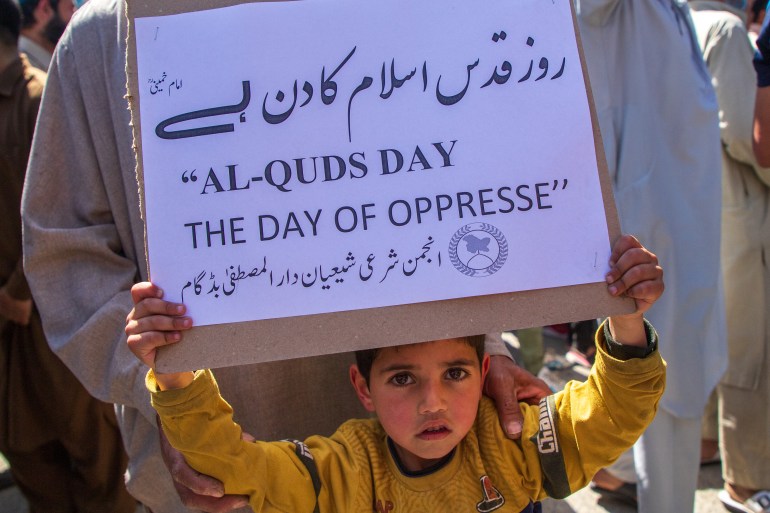
How do people around the world mark Quds Day?
Peaceful mass protests and rallies are held in several countries around the world, particularly in those with strong pro-Palestine communities.
The largest Quds Day rallies will likely be held in Pakistan, Iran, Iraq, Lebanon, Yemen, Jordan, and the occupied West Bank, while demonstrations may also occur in other countries such as India, Bahrain, South Africa and Morocco, according to Crisis24, a global intelligence group.
In past years, hundreds of people have also demonstrated in Western countries including the United States, Canada, United Kingdom, Germany and Australia.
These gatherings are not limited to Muslims. People from other faiths, including Jews and Christians, join as well. Participants in the rallies sometimes also chant anti-Israel and anti-United States slogans, while burning and trampling on Israeli flags.
This year, a large funeral will also be held in Tehran for Iran’s Revolutionary Guard members who were killed by an Israeli attack in Damascus, Syria.
Iran has also used the rally over the years to showcase its military might. In 2022, the Islamic Revolutionary Guard Corps displayed several types of locally developed missiles, including a recent Khaibar Buster missile, in different areas of Tehran.
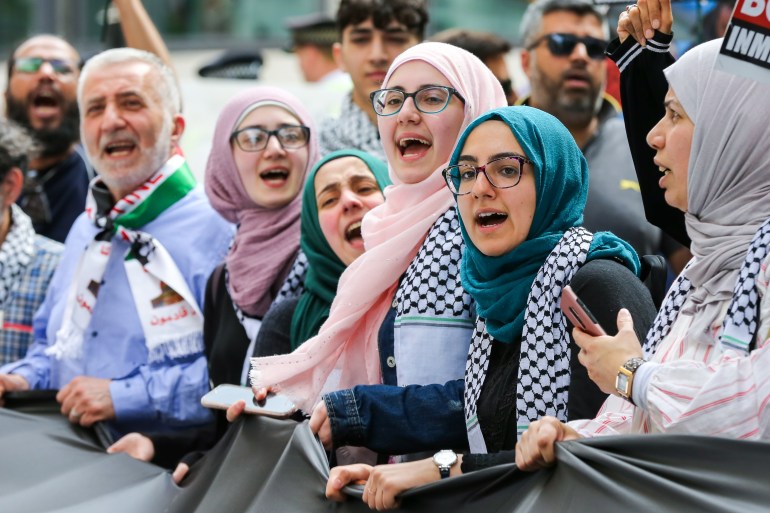
Is there a risk of violence or unrest during Quds Day protests?
In London, where peaceful Quds Day protests have been held for more than 40 years, several pro-Palestine organisations have written to the Metropolitan Police Commissioner, urging them to drop “heavy-handed tactics” during this year’s march.
Since the start of Israel’s war on Gaza, many pro-Palestine marches and protests have taken place. However, “the Metropolitan Police has abused its legal powers to harass pro-Palestine protestors”, a statement from the Islamic Human Rights Commission (IHRC) in the United Kingdom said.
Back in 2017, London’s mayor, Sadiq Khan, called on Home Secretary Amber Rudd to ban Quds Day marches. However, she refused the request, saying that people should be allowed to peacefully protest and demonstrate their views “however uncomfortable these may be to the majority of us”.
Quds Day protesters are often at risk of police and military brutality. In 2009 and 2014, Nigerian armed forces launched deadly attacks on Quds Day rallies held in the northern city of Zaria, according to IHRC (PDF).
In 2009, thousands of demonstrators in Iran used Quds Day marches to protest against then President Mahmoud Ahmadinejad’s disputed election win. In some cities, the police stood on the sidelines of these activities. In others, such as Shiraz and Tehran, there were reports of arrests and tear gas being fired at crowds.
In 2010, the Tehreek-e-Taliban Pakistan claimed responsibility for a suicide bombing during a Quds Day procession of Shia Muslims. The attack in the Pakistani city of Quetta killed at least 65 people and injured more than 100. Shia Muslims are often the target of sectarian strife in Pakistan where Sunni Muslims form an overwhelming majority.
